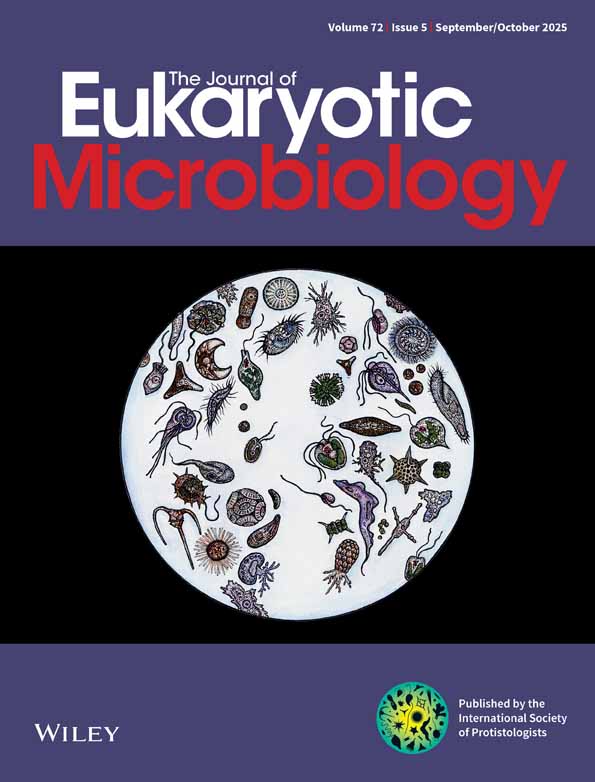Comparative In Vitro Development of Precocious and Normal Strains of Eimeria tenella (Coccidia)
Abstract
SYNOPSIS. Eimeria tenella strain Wis-F is known to develop in chickens with a significantly shortened prepatent period and its pathogenicity is virtually completely attenuated. In vitro development of this strain paralleled development of the control (Wisconsin) strain through the first asexual generation. Instead of entering 2nd generation schizogony, however, most of the Wis-F merozoites developed into microgamonts or macrogamonts. Wall-forming bodies were prominent in developing macrogametes at 80–88 hr and began coalescing into the oocyst wall by 88 hr. Microgamete development paralleled that of macrogametes, with the appearance of multinucleate, immature forms at 72–80 hr and with recognizable, spermlike microgametes being prominent at 88–96 hr. Pathogenicity attenuation and reduction of the length of the prepatent period clearly resulted from omission of a portion of the life cycle (2nd generation schizogony).




